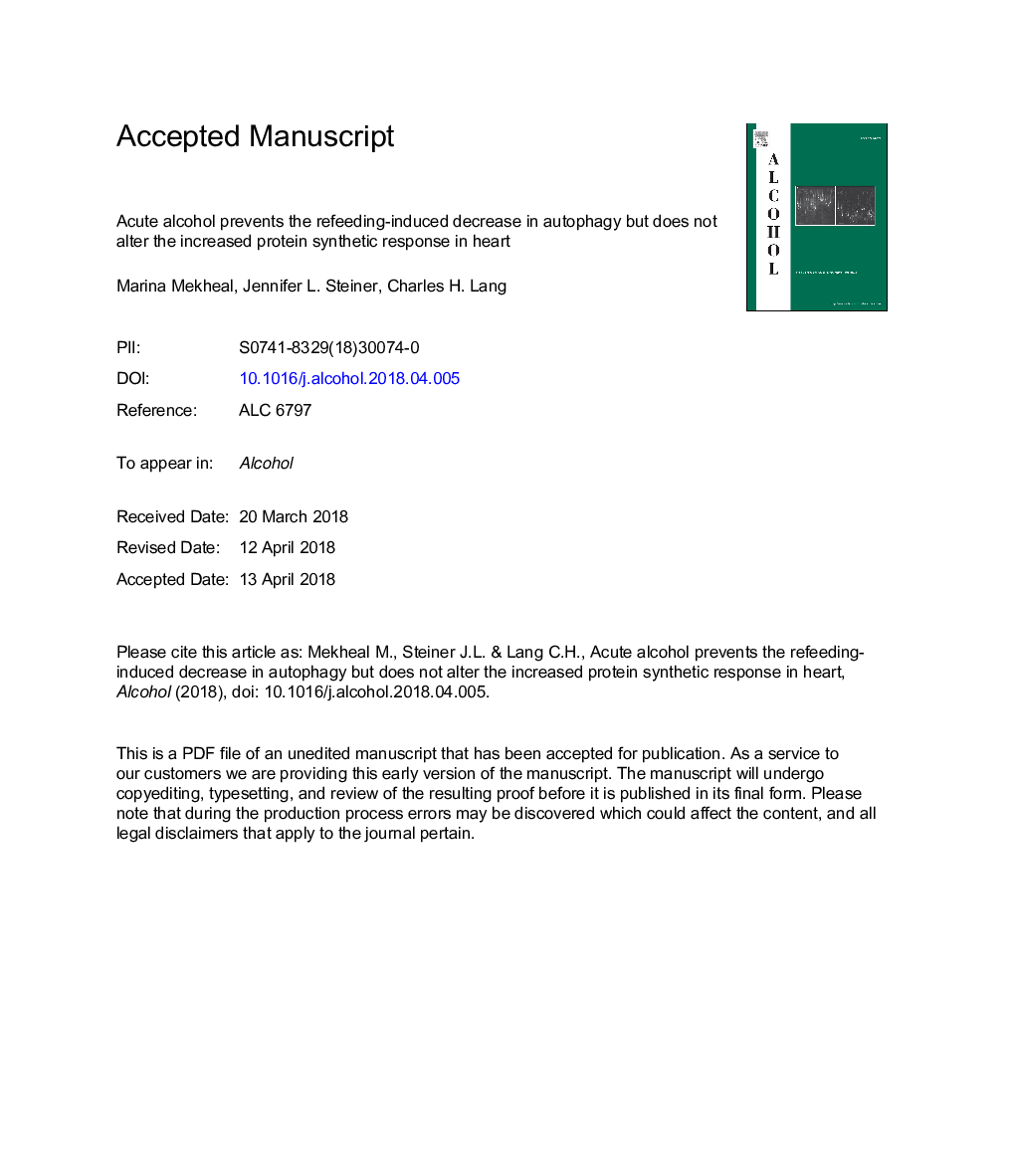| Article ID | Journal | Published Year | Pages | File Type |
|---|---|---|---|---|
| 11005464 | Alcohol | 2018 | 32 Pages |
Abstract
Ethanol produces a state of anabolic resistance in skeletal muscle; however, whether the heart displays a similar defect is unknown. Hence, the purpose of this study was to determine the impact of acute ethanol administration on the major signal transduction pathways in the heart that are responsible for regulating the protein synthetic and degradative response to refeeding. Adult male C57Bl/6 mice were fasted for 12Â h. Mice were then either refed normal rodent chow for 30Â min or a separate group of mice remained food deprived prior to administration of 3-g/kg ethanol. Cardiac tissue and blood were collected 1Â h thereafter and analyzed. Acute ethanol prevented the nutrient-induced stimulation of S6K1 phosphorylation in heart, but did not alter the phosphorylation of S6, eIF4B, and eEF2, known downstream substrates for this kinase. The refeeding-induced redistribution of eIF4E into the active eIF4F complex was also not changed by acute ethanol. Consistent with the above-mentioned changes in signaling proteins, ethanol did not impair the refeeding-induced increase in cardiac protein synthesis. Proteasome activity was not altered by alcohol and/or refeeding. In contrast, ethanol antagonized the refeeding-induced increase in ULK1 phosphorylation and p62 as well as the reduction in LC3B-II and Atg5/12 complex proteins. These data indicate that acute ethanol prevents the normally observed inhibition of autophagy seen after refeeding, while the mTOR-dependent increase in protein synthesis remains largely unaltered by alcohol.
Related Topics
Life Sciences
Biochemistry, Genetics and Molecular Biology
Biochemistry
Authors
Marina Mekheal, Jennifer L. Steiner, Charles H. Lang,
